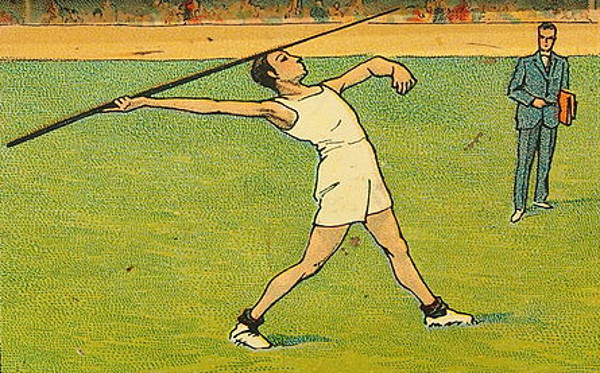
With the recent rash of NFL scandals, it makes one stop and wonder, why do sports matter? Really, in the big picture, why should we worry about the character of our athletes? Why should we encourage participation in sports or watch our teams? Okay: health, entertainment, and whatnot. But there are other things that provide those benefits just as well. Everyone could just hit the gym and watch a movie, then girlcrush on the celebrity of their choice.
So what’s the big deal about sports? Why should we want to fix this?
At a great fundraiser for the non-profit Good Sports last week, they had an enlightening statistic in their presentation. 95% of CEOS participated in sports in high school. That got me thinking. What would drive that? Do we just want really physically fit bosses? Doubt it, since CEOS are usually a good long way out of high school.
So perhaps sports teaches us something. Something we need to know to be successful in the business world, even in the world at large.
When I was first hired after college graduation, many, many years ago, I read a particularly bad book about women in the business world. The name and author of the book are long forgotten and there was much about the book I found opposite of my newbie experiences. Some of it came across as borderline paranoid. It was, to the writer’s defense, a different era. There weren’t a lot of women in business, and there were none at the top of any major corporation. I was hired as the tide was turning.
But there was one point in the book that matched my experience completely. People who played sports as kids picked people to work with based on their skills. They wanted the best players on their team. It didn’t matter if they liked them. The non-sports people, on the other hand, tended to pick people they liked, valuing friendship over capabilities. Back then, that divide tended to be boys versus girls.
I was lucky. I lived in Ann Arbor, where sports ruled everything and high school offered me the opportunity to compete. I ran cross country and track. There were so few high school girls cross country teams in Michigan in the late 1970s that we would have to travel for three hours to find a competitive meet.
It was a long way to go, but when I look back, I realize that experience, more than any classroom work, made me a good leader in the business world. Here’s what I learned from participating in sports:
Be a team player
Whatever your personal standing on the team, whether you are the best or worst, you are part of the group. Act like it.
Team reputation matters
Do nothing that diminishes the reputation of the team. That means behaving well both in and out of uniform.
Know the rules and follow the rules
No one likes a cheat. You may get away with cheating for a while, but at some point it will blow up on you and you will be off the team.
Work to improve your performance
Your job is to get better, every day. Train, push yourself, learn to do things differently. Pull your weight.
Compete
Winning and losing: we learn from both experiences. But you have to compete to win and to lose. And you should experience both. You only know how good you can really be when you perform under the pressure of being watched by an audience.
Coach
As soon as you know how to do something, you can teach someone else. There will always be people coming into the team who look to you for advice and counsel. Give it.
Be coached
You always have something to learn. Listen.
Cheer
Be supportive of the others on your team. Make them feel valued and appreciated. Acknowledge their strengths. Celebrate their achievements. You wouldn’t be there without them.
When you consider these points, they are the same rules for good corporate leaders. We want people who do all of these things in our company, don’t we?
When kids don’t have this opportunity, they lose the chance to learn these lessons. This is why sports matter. Not because we need great athletes, or for everyone to be physically fit. Those are bonus extras. We need people to know how to be part of a team.
Sports provide that training.
Share this:
2 Comments:
Comments are closed.

Excellent article!
Great stuff! If everyone on your team looked at the 7 lessons and graded themselves, it’s a perfect way to inventory your organization. People will have natural tendancies leaning towards a few more than others, but being conscious of all 7 makes each individual better, and they say in sports, “you’re only as good as your weakest link.”